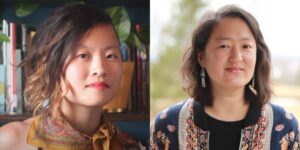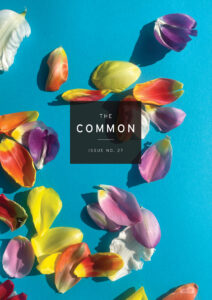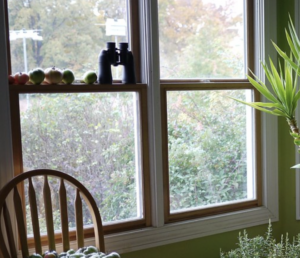By LEILA CHATTI
Around me, the stubborn trees. Here
I was sad and not sad, I looked up
at a caravan of clouds. Will you ever
speak to me again, beyond
By LEILA CHATTI
Around me, the stubborn trees. Here
I was sad and not sad, I looked up
at a caravan of clouds. Will you ever
speak to me again, beyond
By TAHIR ANNOUR
Translated by MAYADA IBRAHIM
Dew
Uncle Musa died. A year after his passing, my father headed north. He said he would be back in a month.
It all happened so fast I barely caught it, like a migratory bird resting in a dark corner of the forest, like all the things that crowd my memory. No sooner do they appear than they vanish. When I try to recall the details, to understand what happened, none of it makes sense. Time lures the mind into letting go, submitting to the abyss, but I know the mind is capable of reaching into the well of the past. All these memories, from time to time they pierce through the pitch-black darkness. They gleam and fade into the shadows of this exile, of this rotten world.
On one of the shadowy days before his departure, I accompanied my father to the farm. It was the afternoon. Our farm was just outside the village. People were drying their earthenware in the sun: cups, bowls, pots, censers, jars. Children ran around them and erected little churches. They waded deep into the mud, sinking their hands in as if into spilled blood—the blood of an offering, perhaps—smearing their faces and tossing it at one another. They yelled and called each other names. Their clothes were the color of rust, their faces crocodile-like.
I tried to get in touch with my inner knowledge.
Turns out I have no inner knowledge.
I used to think I did.
Could sit on a rock contemplating the frog, the river, the rotisserie chicken
and know that everything is connected to everything else.
Or, that I had a messed-up childhood and never fully left the home.
Or, that abandonment was a product of eating too much candy.
But then the dog saw the squirrel.
By SEAN CHO A.
in the absence of wind: stillness of course.
the slowness of the leaves is a reminder
of the importance of scale. of time. scale
of time. the stillness in the branches becomes
Right before her twenty-fifth birthday, Chacha shaved her head, shearing the long black hair I’d known my entire life down to tiny-ass stumps. Having not spoken to my half sister in months, I learned about her haircut through Cero Reyes in the hallway of Our Lady of Guadalupe, where I was a sophomore. He was the little brother of her number-one homegirl, Cici, and had been there that past weekend at his parents’ hacienda up in the North Valley, banging on the bathroom door while our hermanas conspired Chacha’s new look.
I had to take a fucken piss, he said. Real bad too, but they spent over an hour in there, all giggling n’ shit.
You got a fuckload of bathrooms, I replied, gathering books from my locker to show the huevón I had other priorities. You coulda pissed in any of them.
“Cero” was a nickname that translated to nothing. It had carved this wiry, tacuache-looking vato since the day he could talk. Dude blabbered so much as a baby, stringing together words in an order that, according to his parents, made zero sense. He belonged to a family that made a name for itself in Juárez through some maquiladora empire. They’d moved to Albuquerque once his mami announced her desire to start a turquoise jewelry business. A couple years later, Cici popped into their world, who then met Chacha in a dance class for toddlers, and next thing you know they form this lifelong bond, a friendship so strong it forced me to spend too much of my childhood on a giant estate where I couldn’t help but wish my parents never divorced—wish we had enough skina to get out the varrio—wish my mother wasn’t such a pinche gringa and my pocho father spoke better Spanish.
That ain’t the point, Cero continued. It’s my bathroom, cuh. They used my shaving kit. Your sis’s hair was on the sink, shower, mirror—even the fucken toilet seat!
Your speech
tongue in cheek, like descriptions of cocktails
in this bar full of handsome strangers
who won’t meet my eye
Rockport, ME
Saturday
At the laundromat the whir of machines,
whorled & busy, the pleasure & difficulty
of stillness Waiting, sockless, I aspire to be
the cross-legged woman reading a magazine,
 Tiana Nobile (left) Sarah Audsley (right)
Tiana Nobile (left) Sarah Audsley (right)
Sarah Audsley’s debut poetry collection Landlock X (Texas Review Press, 2023) is described by Sally Keith as “formally active in its interrogation; it is as if somewhere—in poetry, in art, in translation—there is a combination for righting the painful history of adoption, for learning to live simultaneously with and against.” Audsley has received support for her work from The Rona Jaffe Foundation, Vermont Studio Center, and the Banff Centre. In this interview, long-time poet-friends TIANA NOBILE and SARAH AUDSLEY discuss writing into negative space. Their intimate conversation touches on contending with audience, silences, absence, and writing from the perspective of the adoptee experience.
This event has passed, but you can watch a recording of it below, or here on YouTube!

Join us for the launch of Issue 27 of The Common! We welcome essayist and AGNI editor Sven Birkerts, poet January Gill O’Neil, and fiction writer Jade Song. Issues will be available for purchase. We’ll have brief readings, a short Q&A, and lots of time to mingle!
 Left to Right: Sven Birkerts, January Gill O’Neil, Jade Song
Left to Right: Sven Birkerts, January Gill O’Neil, Jade Song
Sven Birkerts is the author of a number of books of essay and memoir. His The Miro Worm and the Mysteries of Writing will be published in October. Former Director of the Bennington Writing Seminars, he co-edits the journal AGNI. He lives in Amherst with his wife.
January Gill O’Neil is the author of Glitter Road (CavanKerry Press, 2024), Rewilding (CavanKerry Press, 2018), recognized by Mass Center for the Book as a notable poetry collection for 2018; Misery Islands (CavanKerry Press, 2014), winner of a 2015 Paterson Award for Literary Excellence; and Underlife (CavanKerry Press, 2009). The recipient of fellowships from Cave Canem and the Barbara Deming Memorial Fund, O’Neil was awarded a Massachusetts Cultural Council grant and was named the John and Renée Grisham Writer in Residence for 2019-2020 at the University of Mississippi, Oxford. She is an associate professor of English at Salem State University and is board chair of the Association of Writers and Writing Programs (2022-2024). O’Neil lives in Beverly, Massachusetts.
Jade Song is a writer, art director, and artist in New York City. Her debut novel Chlorine was published by William Morrow/HarperCollins (US) and Footnote Press (UK) in 2023 and will be translated into Chinese and French. Chlorine was selected as a New York Times Editor’s Choice, lauded as “visionary and disturbing,” and listed as a must read book by Buzzfeed, Cosmopolitan, Vanity Fair, and other outlets. Say hi @jadessong and jadessong.com.

Lake Katrine, NY
I visit with a friend as she works to empty her mother’s house, who died just days before Christmas, and each object holds a tiny piece of Susan. I come away with several treasures lovely (a hand knitted scarf, a clay donkey to hold my garlic) and practical (a metal frog for summer flower arranging, a switchplate for the guest bedroom).
This small home was itself a downsize, and these many items are the survivors of her mother’s own earlier culling, so are a little piecemeal, each one tasked with balancing an eager backstory on its tiny shoulders. More than two of anything inspires commentary, my attempt to make knowledge in place of the knowing I hadn’t sought earlier: She must have liked Edith Wharton or She had quite a collection, here. My friend’s own childhood artwork hangs in several places, and each flutters with a colored post-it; I’ve arrived too late for those.